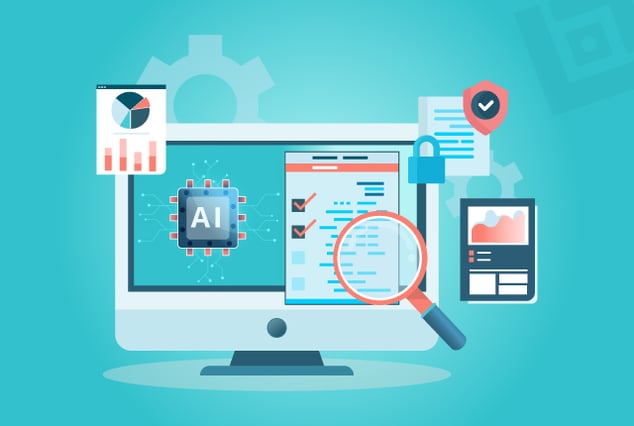
Over the course of the last few years, the retail sector has undergone a significant digital transformation with the advent of online shopping platforms. In addition, the need to deliver an omnichannel retail experience, and easy-to-navigate online store CX has put additional pressure on front-end and back-end developers.
With time, software solutions for the retail sector have grown to include inventory, CRM, data warehousing supply chain management, eCommerce channels, and PoS systems. Since the retail sector is all about delivering a positive client experience, a poor user experience with a website, application, or piece of software might cause a company's entire sales chart to collapse. As a result, success depends on building a fully working retail marketplace that is executed with retail PoS performance testing.
What Is Retail Application Testing?
Any retail application has many components such as quoter, payment options, warehouse, shipping options, and inventory. Retail application testing ensures the synchronization and proper functioning of these components. To make sure there are no issues in the production environment, we need to develop a testing strategy that includes different types of testing as per business requirements.
Why Retail Application Testing Is Important?
Designing retail applications has become increasingly complex with evolving customer requirements. It’s very important to have an application that resonates well with the customers’ needs while keeping production costs under control and maintaining the quality of the end product.
Moreover, it is important to ensure that an application is secure from cyber threats. To ensure this, applications need to be tested at various user load levels to ensure that it is meeting the end user's expectation.
Types of Retail Application Testing
For the purpose of offering a consistent, seamless, and integrated consumer experience, testing omnichannel, mobile retail systems, or applications has become essential. Different types of testing scopes help retail applications function successfully. The various testing methods that must be used for successful omnichannel retailing initiatives include the following:
- Unit Testing: Unit testing is low-level testing to ensure that the individual components of the software are working properly. This type of testing is usually done during the development phase.
- Functional Testing: This will ensure that the application is meeting its original requirements. During functional testing, it is very important to ensure detailed test cases are created and executed on different OS, browsers, and mobile devices. To verify end-to-end functionality, we can create manual test suites or automation suites. We should create an automation framework using the latest tools and all mobile devices and web test scenarios should be automated.
- Mobile Testing: An application design will be different on different mobile devices, depending upon the screen size of the mobile device. Mobile testing is important as most users are using mobile devices instead of desktops or laptops. The purpose of mobile testing is to ensure that all features and pages are responsive on mobile devices.
- Accessibility Testing: Accessibility testing makes an application handy for specially-abled users. There are different accessibility tools for Android and iOS mobile devices to access an application using shortcuts. The content of the application should be perceivable, operable, understandable, and robust on all types of devices and platforms.
- Security Testing: Security testing or penetration testing is most important for a retail automation software system. This will ensure the application is secure from unauthorized users and hackers. Also, it is important to make sure payment transactions in the application are secure and unauthorized users are unable to steal any sensitive information.
- Performance Testing: Retail application response time should be very quick. Customer behavior nowadays is very unstable and if the application response time is longer than usual, then the customer will leave the site. Performance testing ensures the stability and response time of an application by applying load (number of users).
Challenges in Retail PoS Testing
Like every other application, retail applications also face several challenges such as the ones mentioned below:
- Long Test Cycles: There are many phases in a test cycle such as requirement analysis, test planning, test design, test environment setup, test execution, and test closure which can be very challenging for the software products. For the retail application testing cycle, there is mostly an estimated publish date given by stakeholders. Therefore it is essential to finish each phase of the test cycle on time.
- Testing Multiple Builds: Retail applications need continuous integration with new components. Usually, there is a requirement of testing multiple builds. Therefore allocation of time and resources is mandatory to test each component. Another way is to set the testing priority of every build so that critical components are tested first. Also, maintaining automation scenarios plays a crucial role so that it is easy to identify changes and defects in the application.
- Availability of Test Data: To test retail applications in the QA environment, appropriate test data should be available. Test data can be stored on the local machine, dropbox, and in any shared location. Test data may contain doc files, pdf files, media files, and images. Apart from this all possible testing quotes and orders should be set up by the stakeholders in the QA environment if required.
- Lack of Domain knowledge: Testing team should have experience in the retail application domain. Relevant training should be conducted for the testing teams. Before testing an application one should have deep knowledge of the product and policies of retail applications.
- Testing Environments: Testing all scenarios on different devices and OS is also a challenging task. Based on the cost of testing devices, the testing team needs to manage various physical or shared testing devices. Also, we need to make sure that the UI on every page is being tested on different devices/resolutions.
- Integration with Third-party APIs: In order to increase the fundamental functionality of one application system, third-party integration is a special tool created to integrate easily with another product application. The software product serves as the focal point for the collection and exchange of data between all third-party systems linked to it. These days retail applications are integrated with many third-party APIs such as Facebook login, Google Maps, and various payment gateways. Appropriate access and accounts are required for testing these APIs with retail applications.
- Tight Deadlines for Testing: Sometimes due to errors all other test cases are blocked and by the time it is fixed, testers are left with very little time. Therefore it is recommended to highlight and fix blocker issues first. Moreover, testing teams need to work on the testing plan and manage test cases.
- Dependencies on Multiple Modules: Retail applications are complex, where every module depends on the performance of other modules. The major components of a retail application are inventory, quoter, warehouse, purchase orders, supply chain, marketing pages, and merchandise planning.
- Testing From Different Locales: Different countries have different cookie policies, violating which can lead to regulatory fines. Therefore it is mandatory to test applications from different locales. There are many tools and VPNs available to test this scenario. Also, it is required to test the retail application's UI in multiple languages.
- Communications: Proper communication among stakeholders, clients, Dev, and the QA team plays an important role. All testing requirements and areas should be mentioned in the testing document/email. Also, while reporting steps to remove bugs, actual vs expected results should be clearly defined.
Why Automation Is Required for Retail Applications Testing?
Test automation is critical in preventing breaches in customer data. Let's look at some of the main justifications for why retail testing requires automation.
- Retail applications are complex and every module is interrelated with multiple modules. Therefore, integrating new features into the application will affect other parts of the application also. Running automation suites will help us keep the previous functionality intact.
- As there is limited time for testing new features in the test cycle one may ignore issues in existing functionality. We can run existing automation scripts instead of executing test suites manually. Once manual testing of a new feature is completed for a module, we can create new test automation scripts (or update the existing regression suite.) Now, executing the automation regression suite again will help us find any defects in existing functionality and save time.
- The automation framework is capable of finding defects when it includes every possible test scenario. We need to have all the latest features such as mobile testing, cross-browser testing, and API testing. It is also important to choose the appropriate automation framework type, tools, and technologies. Reports generated from the automation framework should be relevant. Here at QASource, we have maintained all automation frameworks for many years. Also, the automation team has experience in resolving any issue that may come across.
Conclusion
A combination of automation testing and planned testing techniques can make retail application testing trouble-free. With the help of the latest technologies in the market, QASource will take care of your retail application testing requirements. We have expertise in creating customized automation solutions with the latest technology stacks. We offer all types of testing solutions such as manual testing, automation testing, API testing, security testing, performance testing, and accessibility testing. For the best software testing services offered in the industry, partner with QASource right away.


